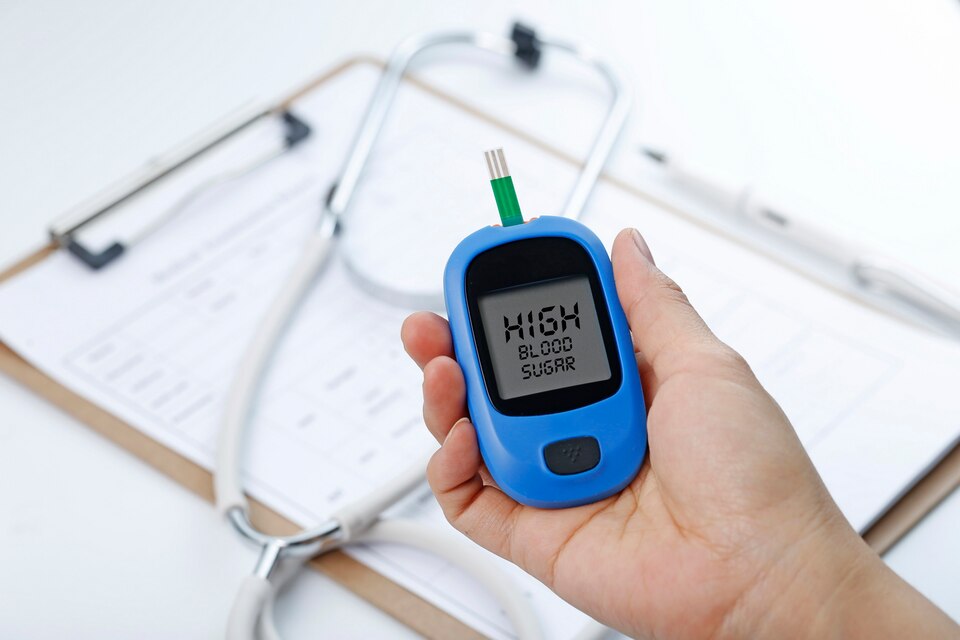
Blood glucose is the main origin of energy for the body. Insulin lets blood glucose into cells to turn it into energy. Diabetes mellitus, which is often just called Diabetes, is a long-term disease that happens when the pancreas doesn’t create adequate insulin or when the body doesn’t use it well.
There are three main types of Diabetes:
- The body stops making insulin when someone has type 1 diabetes, a long-term disease. The defense system kills the cells in the pancreas. When a human contains type 1 diabetes, they will always need insulin shots.
- Most people with Diabetes have type 2. It occurs when the body stops reacting to insulin, which makes the blood sugar level rise. When blood sugar goes high for an extended period, beta cells in the pancreas must work harder to release and make enough insulin to regulate the high blood sugar. This destroys beta cells and stops them from working as well as they should. One day, beta cells could cease making sufficient insulin to deal with the amount of sugar in the blood.
- Some pregnant women can get a type of Diabetes called Gestational Diabetes. It happens when the placenta makes chemicals that cause your blood sugar to be too higher. It shows no signs. Gestational Diabetes generally goes away after a woman gives birth, but it makes a woman much more inclined to grow type 2 diabetes in the future.
What types of issues can Diabetes cause?
Diabetes makes it more likely for a person to have several major health problems. When blood glucose levels stay high for a long time, it can lead to dangerous diseases that affect the eyes, joints, kidneys, nerves, lungs, heart, and blood vessels. Complications are more likely to happen when blood sugar is not in check. Let’s examine a few things that can go wrong with the body when Diabetes isn’t controlled.
Eye problems
Diabetes can lead to these problems with the eyes:
Retinopathy Related to Diabetes
Diabetes changes the blood vessels in the retina, which is the light-delicate tissue at the back of the eye. Retinopathy caused by Diabetes may not have any signs or could result in mild vision problems. But if you don’t take care of it, it could cause you to lose sight.
Cataract
When the cloudy component of the eye lens renders it hard to see, this is called a cataract. Cataracts usually happen over time and can affect either eye. Fading colors, hazy or double vision, halos surrounding lights, difficulty with bright lights, and difficulty seeing at night are all symptoms.
Glaucoma
It is an eye condition in which pressure within the eye is higher than normal, which hurts the visual nerves. A person with Diabetes is almost twice as likely to get blindness as a person without Diabetes. If you don’t treat it, it might render you blind for life.
Foot trouble
Diabetes can hurt the blood vessels and nerves in your foot and the region around it if you fail to care for it. These problems can cause an illness of the foot called diabetes foot. It can tingle, numb, burn, or hurt your fingers and toes.
It can be difficult for them to cure if you don’t treat your cuts. A simple shoe bite can cause a wound that won’t heal. If this isn’t considered right away, it could worsen, and a foot or leg might have to be cut off.
Cardiovascular problems
If you don’t take charge of your Diabetes, it can lead to major heart problems such as ischemic heart disease, which happens when the blood provided to the heart muscle is chopped off or stopped. People with Diabetes usually die from heart disease or a stroke in addition to anything else. Heart problems are more likely if you have high cholesterol, high blood sugar, high sugar levels, and other risk factors.
Kidney problems
Diabetes makes it impossible for kidneys to do their jobs, which causes waste to pile up in the body. Most of the time, the damage happens slowly over time. When the harm done is too bad, the kidneys fail. This means that you need dialysis or a new kidney. Diabetes is the main cause of long-term kidney disease and kidney failure worldwide.
Obstetrical Difficulties
Diabetes while pregnant can also cause issues for the baby, such as jaundice, difficulty breathing, and abnormally high gestational weight, making the baby more likely to get hurt badly during delivery.
Children whose blood sugar levels were high for a long time while still in the womb are more inclined to get Diabetes as adults. Whether they have type 1, type 2, and gestational diabetes, all diabetic women should try to keep their blood sugar level steady while pregnant.
Oral problems
Diabetes can hurt more than just the organs which keep us alive. We can also hurt our teeth. People with Diabetes are more inclined to have gum disease if they don’t check their glucose levels. Most tooth loss is caused by gum inflammation. People with Diabetes might also have mouth sores, bad breath, and a dry mouth.